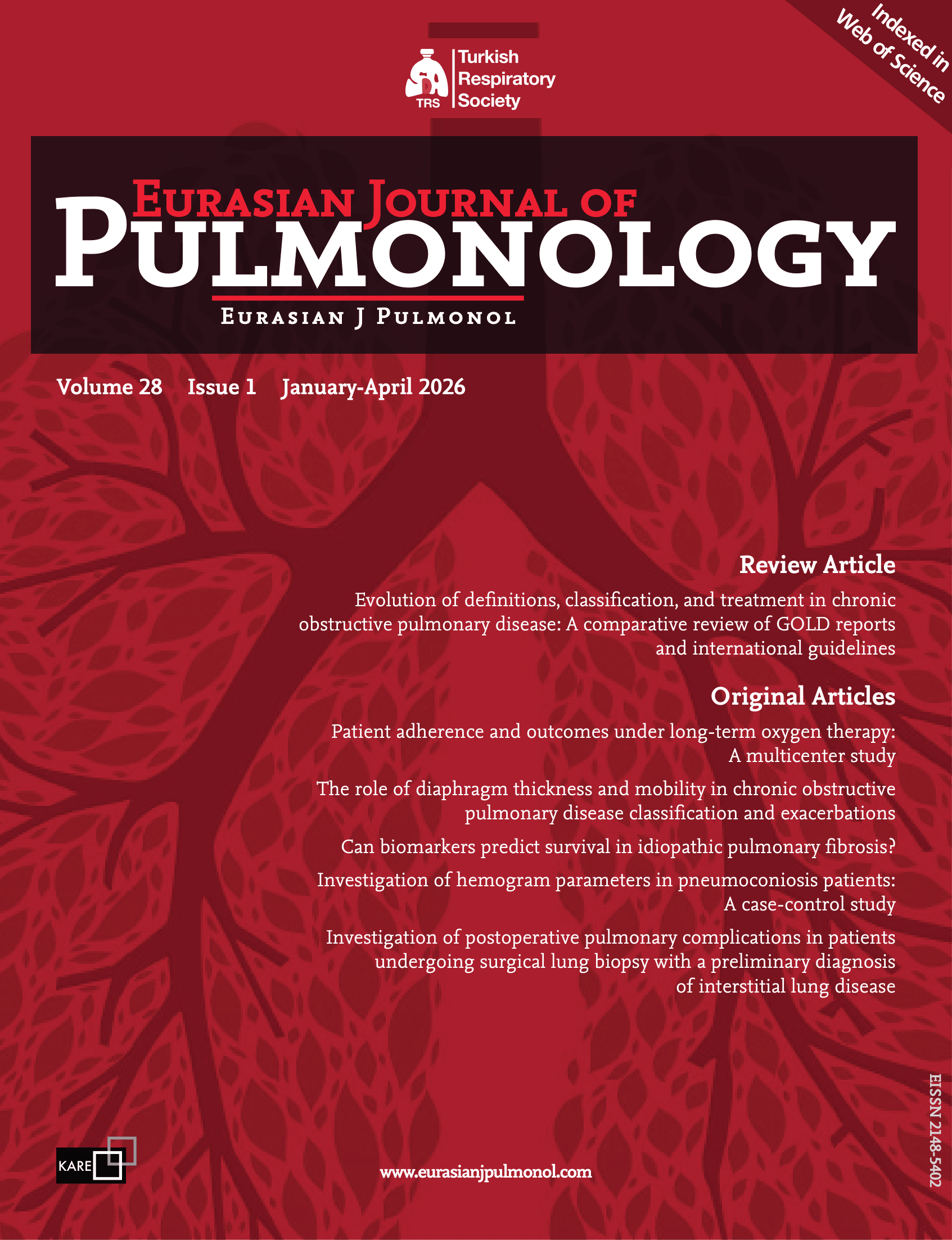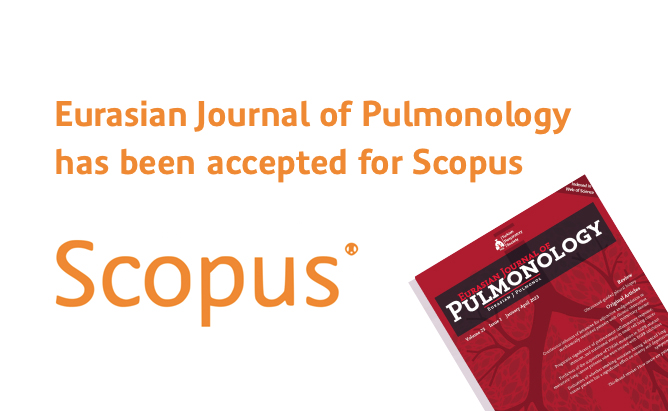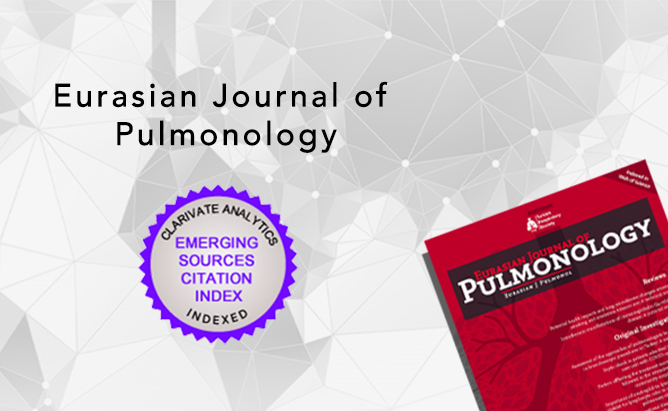2Department of Radiology, Sivas Cumhuriyet University, Sivas, Türkiye
Abstract
BACKGROUND AND AIM: This study aims to explore the relationship between pulmonary function parameters, disease severity, and one-minute sit-to-stand test (1MSTST) in patients recovering from Coronavirus Disease 2019 (COVID-19) pneumonia at the one-year mark. We investigated whether the 1MSTST could provide a feasible substitute for traditional pulmonary function tests, especially during pandemic conditions.
METHODS: We conducted a retrospective cohort study at a state hospital, collecting data from patients diagnosed with COVID-19 pneumonia from November 2020 to June 2021. This included demographic, clinical, and laboratory data, as well as results from pulmonary function tests and the 1MSTST. Correlation analyses were used to assess the relationships among these variables.
RESULTS: The study included 97 patients with a median age of 55. Pulmonary function tests showed mean Forced Expiratory Volume in the first second (FEV1) and Forced Vital Capacity (FVC) values of 2.4±0.8 L and 3.0±0.9 L, respectively. The median score for the 1MSTST was 11 (range: 10−13). Over half (52.6%) of the patients required oxygen therapy, and some needed intensive care or mechanical ventilation. Positive correlations were found between
FEV1, FVC values, and 1MSTST performance (r=0.35, p<0.001; r=0.32, p=0.001, respectively). Lower C-reactive protein (CRP) levels and a younger age were linked to better performance on the 1MSTST.
CONCLUSIONS: Improved pulmonary function parameters were found to correlate with enhanced performance in the 1MSTST, underscoring its potential as an alternative assessment tool for monitoring recovery from COVID-19. Additionally, lower CRP levels and a younger age were linked to better 1MSTST outcomes, highlighting the influence of inflammatory and age-related factors. These findings could assist physicians in evaluating and monitoring patients with post-COVID syndrome.




 Çağla Koç1
Çağla Koç1 




